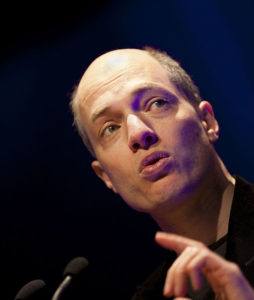
You know something has really hit the mainstream when Alain de Botton starts talking about it.
We’ve been focusing on the importance of community here at UnHerd since our very first days – it’s great to see the theme so prioritised in de Botton’s new book from the School of Life stable. “What we long for and are slowly dying without is: community,” he writes in The Book of Life:
According to de Botton, we have yet to weigh the full consequences of this massive historical transformation. Amongst these, he suggests, is that we place too much weight on finding that one special person who we want to be “that most cruel of things: everything”. Also, “we grow materially, wildly and insatiably ambitious out of an unquenched emotional need for nothing more esoteric than some good friends.” And finally, because we increasingly meet one another not in person but via the media “which constantly give us cause to believe that other people are fundamentally mad, extreme, dangerous and cruel.”
The traditional word for the set-up de Botton admires is ‘the village’ – something that increasingly belongs to the rhetoric of nostalgia, a dormitory for commuters, increasingly bereft of pub and post-office, with only the parish church, as a communal meeting place, hanging on by its finger nails.
De Botton imagines rebuilding places where medium sized groups of people – the “tribe” – would eat communally, work together and where “there’d be a commitment to look after one another, and fellowship based around shared ideals and values.”
What makes this vision so difficult to realise? In part – and this is me speaking, not him – it is because so many of our values have been drawn so as to promote and protect the individual experience. From rights language, understood as the right of the individual to define themselves over and against the prevailing values of the group, to a suspicion of ‘tribes’ as lacking inclusivity – that is, as defining insiders via a denigration of outsiders – all of which serves to make us suspicious of de Botton’s vision.
As he rightly explains, we cannot find the place we seek “because we don’t have the right concepts, experience or encouragement to help us locate it.”










Join the discussion
Join like minded readers that support our journalism by becoming a paid subscriber
To join the discussion in the comments, become a paid subscriber.
Join like minded readers that support our journalism, read unlimited articles and enjoy other subscriber-only benefits.
Subscribe